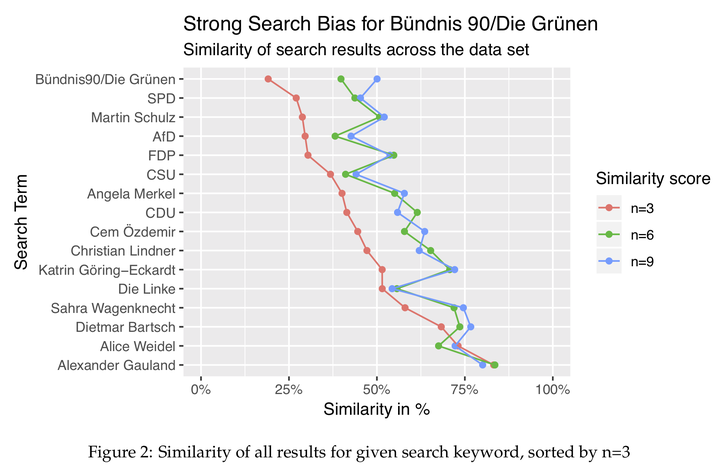Similarity of Search Results in the Datenspende BTW17 Dataset - CSS Data Challenge 2018

Abstract
The filter bubble theory, popularized by Eli Pariser in 2011 is subject of academic discussion. With political polarization seemingly increasing, this issue increases in relevance. As recommender algorithms in news-related data bases or search engines such as Google are often intransparent, the project Datenspende: BTW17 aimed at providing data from the users point of view. Google search results for the major German political parties and their leaders of over 1000 participants were collected in order to make sophisticated analyses possible. Based on the data provided, we conducted exploratory tests to investigate how search results of different users differed. As we deemed the order of the search results relevant as well, we compared how the first three, six and nine results were different respectively. We found that differences were the strongest for the first three results, with large differences between the search terms as well, indicating that for some queries filter bubbles could exist.